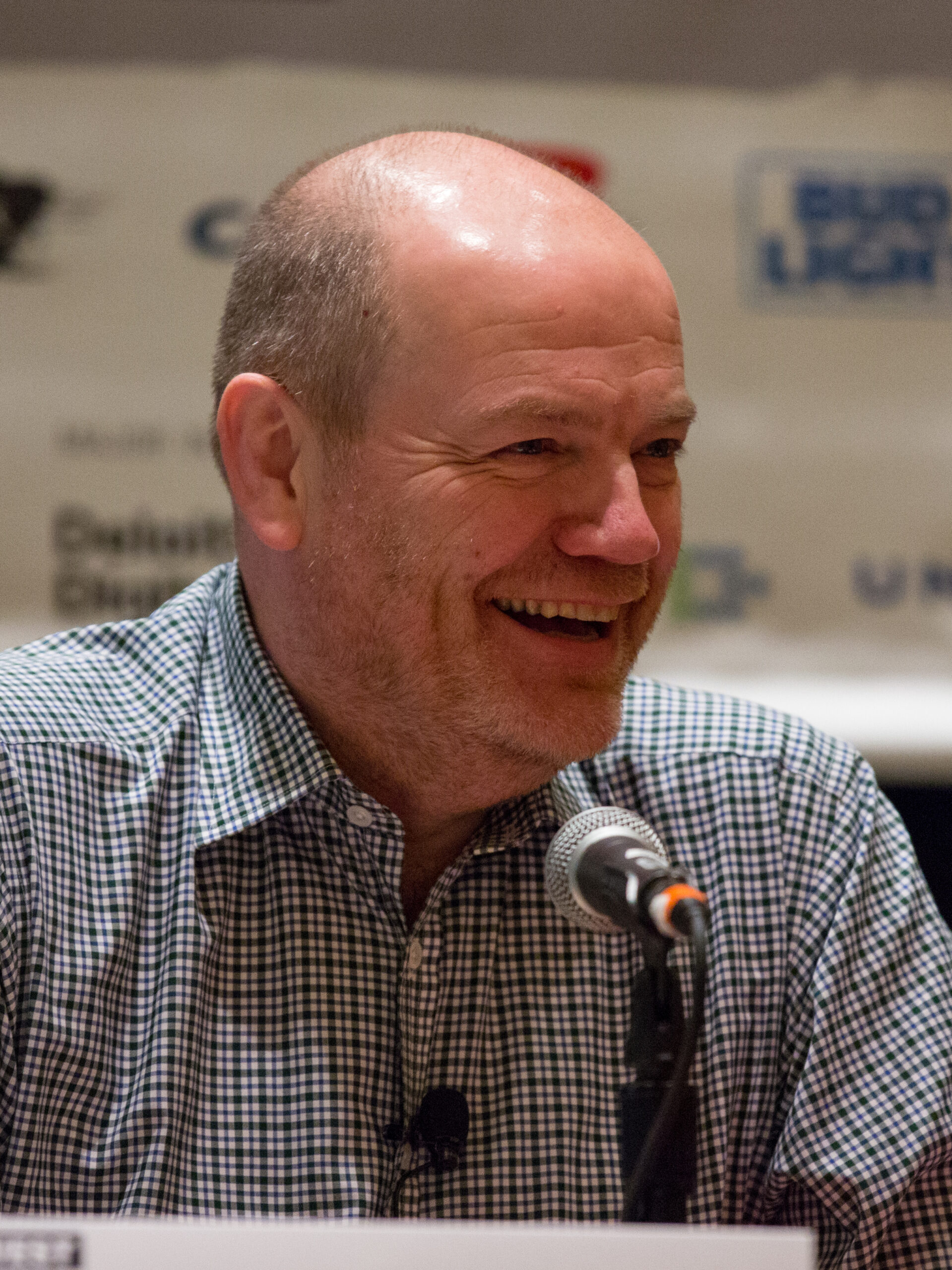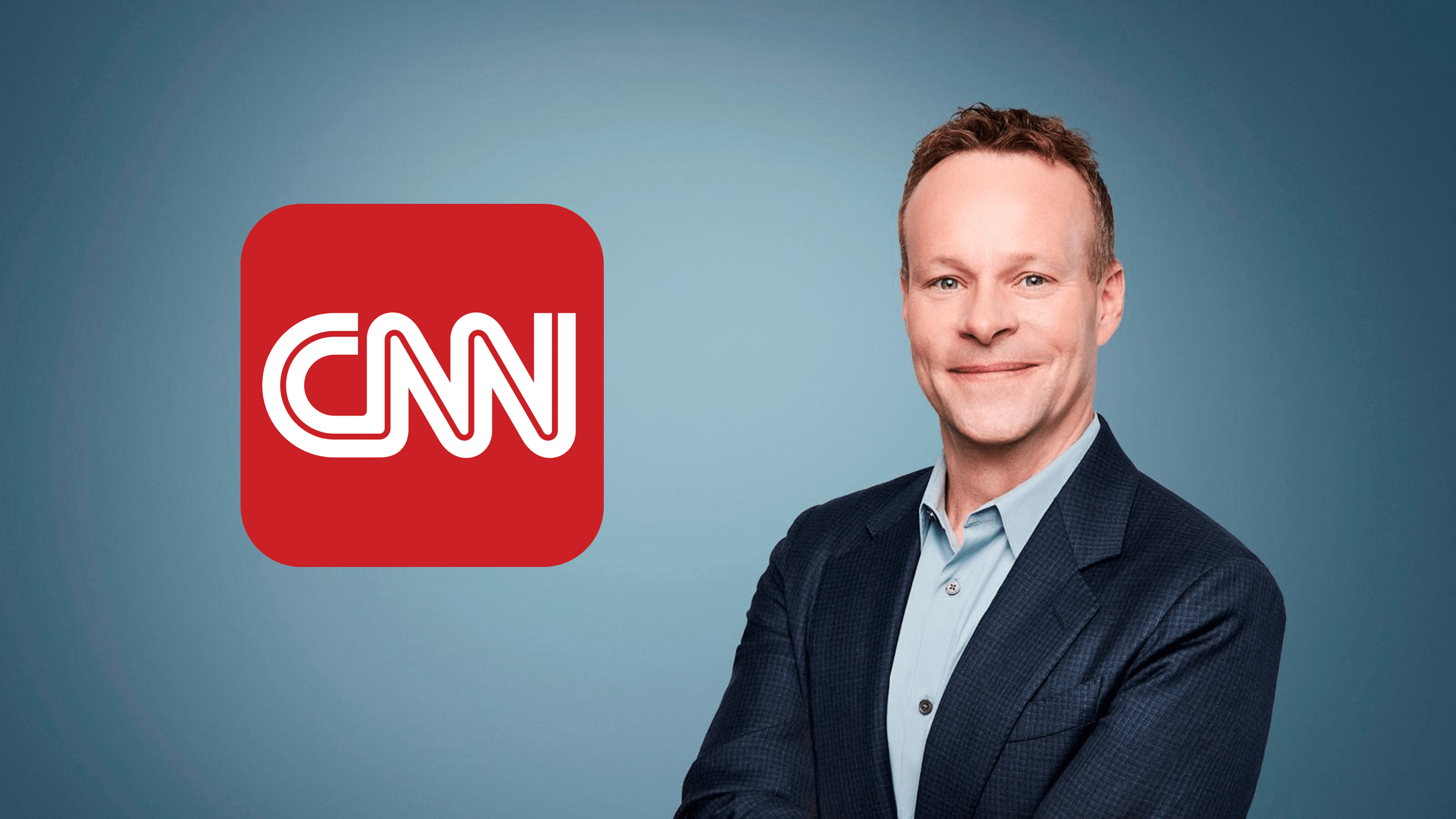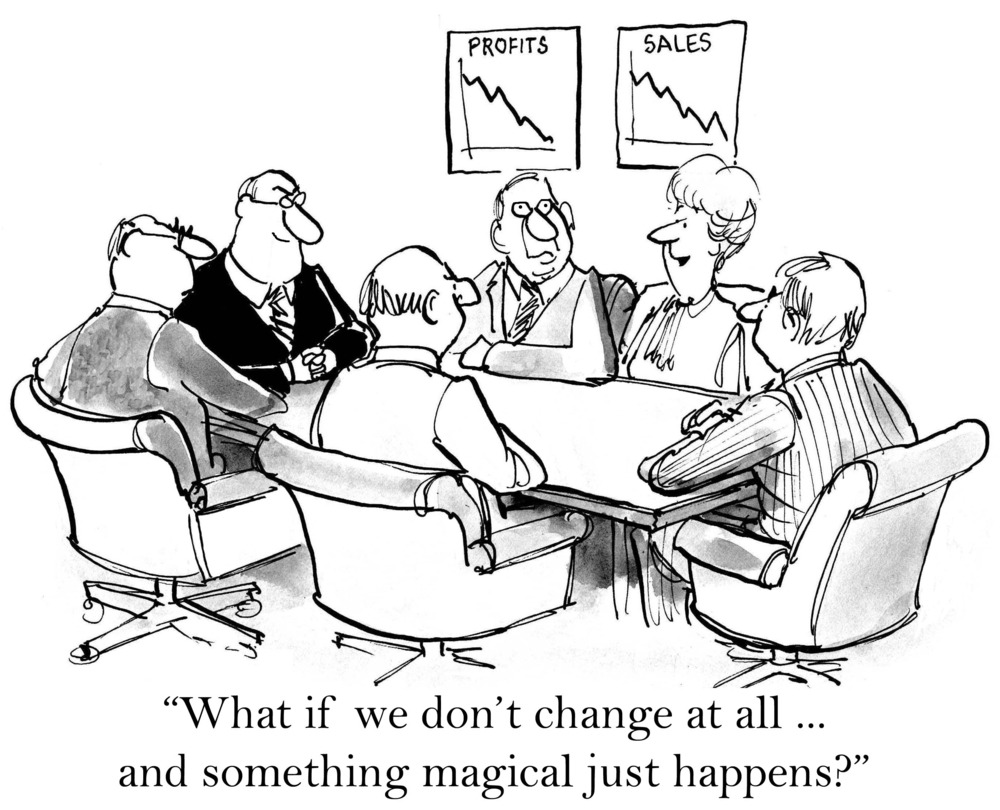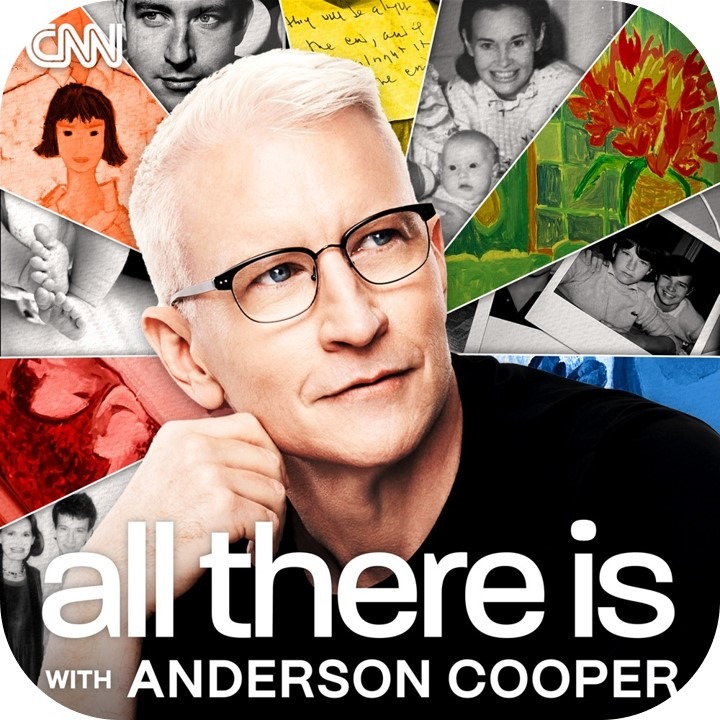
What happens when a once swashbuckling cutting-edged brand becomes a tired, also-ran that is seemingly out of gas?
You bring in a turnaround specialist.
But what happens if that strategy doesn’t work, and you’re still bleeding money, ordering more layoffs, and grasping at straws in an effort to engineer a reversal of ratings fate?
Your next move had better be the right one. Installing yet another “miracle worker” boss is only going to be met by internal and external skepticism and cynicism if your newest savior doesn’t have the right plan and cannot execute it.

That’s what Sir Mark Thompson (pictured) has recently been tasked with at CNN. He’s a British media executive with the right resume, having run both the New York Times Company and the BBC – two venerable news giants both of which are in the process of figuring out the digital transformation puzzle themselves.
Perhaps it helps Thompson’s efforts that CNN has been embroiled in a downward spiral for years now. He certainly has everyone’s attention, thanks to continued poor ratings and widespread criticism of the channel. Many of the “givens” that guided CNN’s success have disintegrated in the semi-recent news cycle, often leaving the network adrift.
It used to be that a mega news crisis immediately drew eyeballs back to Ted Turner’s original 24-hour news network. From 9/11 to controversial presidential elections, CNN often excelled when the world was abuzz with news. And while the Trump Era has brought more “Breaking News” on most days than we were accustomed to seeing in most months, the net result has been anything but positive for CNN.
Seemingly caught in between both MSNBC and Fox News on either side of the political spectrum, CNN has been playing a bad version of “musical chairs” – without a chair. Being the first all-news cable network means nothing to Millennials or even younger viewers who weren’t born when Turner threw caution to the wind and launched CNN in 1980, the same year Ronald Reagan was elected to his first term as President.
If that seems like a long time ago, well it was. And these days, you don’t get points for longevity when you’re talking about media outlets. Just ask the leadership team at Sports Illustrated who recently dismantled their entire staff, watching their legacy fall apart. Or the more than 2,000 local print newspapers that have gone under since the turn of the century.
In addition to missing the “hair on fire” news media blitz since 2015 when Donald Trump stepped on the down escalator at his eponymous tower, CNN has also failed to meet the moment when it comes to digital content, distribution, and of course, monetization.
 Remember that just after launching its ill-conceived premium subscription streaming product, the not-so-cleverly branded CNN+ was shuttered by then-incoming CEO David Zaslav. It lasted just 30 days before its demise. Yes, even bad radio formats endure much longer. Were these moves guided by audience research and usage analytics or were they simply seat of the pants executive whims?
Remember that just after launching its ill-conceived premium subscription streaming product, the not-so-cleverly branded CNN+ was shuttered by then-incoming CEO David Zaslav. It lasted just 30 days before its demise. Yes, even bad radio formats endure much longer. Were these moves guided by audience research and usage analytics or were they simply seat of the pants executive whims?
At CNN, it’s often been difficult in recent years to tell the difference.

The death of CNN+ coincided with the arrival of a different hopeful solution, Chris Licht. As the creator of the successful Morning Joe franchise over at MSNBC, CNN staffers were enamored by Licht’s pedigree as a programmer.
That good will deteriorated quickly following a series of missteps and poor calculations about talent and programming. Licht’s run lasted just one year.
All of that sets the stage for Sir Mark’s reign at CNN. And like the visionary that he is, there’s a written plan for all of the CNN team to mull over and consider in the coming weeks and months that obviously promised much-needed change. It dropped 100 days after he started his gig last year at CNN.
Of course, Thompson will need more than a schematic. At this point, the CNN reclamation project will require the ability to instill confidence in a jaded, cynical staff, not to mention advertisers, board members, and others pulling for a win in a cruel and fickle news environment.
In some ways, Thompson’s task is much like the uphill ones that faced both Jim Harbaugh and Dan Campbell in my neck of the woods on Michigan’s gridirons. A great concept means nothing without great talent, a strong organization behind you, and of course, time. But it either comes together – or it doesn’t – based on a leader’s ability to convince those around him or her the plan actually has a chance of working. Great leaders are almost always gifted sellers.
Suffice it to say, radio operators would be wise to pay attention to Thompson’s path, not because it is “right” (we will see about that), but because it mirrors broadcast radio’s circuitous journey in recent years. While beat up and bloodied, radio companies, by and large, reach many more people than competitors that include audio streaming platforms, podcast producers, and talking book companies. There is a lot to build on, in spite of the difficulties of the past several years.
 A great story in the Hollywood Reporter by Alex Weprin – “CNN’s Mark Thompson Outlines Digital Future for the Cable Channel, Unveils New Org Structure” – provides a well-written template for radio broadcasters – if they take the time to read and absorb it. Thompson’s treatise applies to commercial, public, and Christian radio operators, all of whom are ensconced in the same basic mission.
A great story in the Hollywood Reporter by Alex Weprin – “CNN’s Mark Thompson Outlines Digital Future for the Cable Channel, Unveils New Org Structure” – provides a well-written template for radio broadcasters – if they take the time to read and absorb it. Thompson’s treatise applies to commercial, public, and Christian radio operators, all of whom are ensconced in the same basic mission.
And how about this quote from Thompson in the sub-headline:
“We need to organize around the future not the past.”
Yes, the legacy and heritage of the place deserves respect. But if there aren’t extraordinary efforts to change the current trajectory, CNN will follow the fortunes of Blockbuster, Polaroid, Toys ‘R’ Us, and so many others into oblivion.
And Weprin publishes Thompson’s entire plan, the appropriately titled “CNN’s Future” at the end of the truly insightful story of Thompson’s first moves as head of CNN. It was sent to all staffers earlier this month. No one can complain they don’t know the plan.
Addressing the pain and inevitability of change, Sir Mark frames it this way:
“There’s news of a fair amount of change at CNN in this memo, and no doubt more in the coming months. Change is essential if we’re to secure this great news company’s future. It brings uncertainty — that I’m afraid is inevitable — but in my experience, it’s also often rich in personal and shared opportunity. As we enter this new chapter in CNN’s storied history, I’d encourage you to take a leaf out of Ted Turner’s book. Let’s build with confidence. Let’s fulfill our mission. Let’s learn some new tricks. Let’s look after each other. Let’s have some fun.”
In other words, Thompson is saying, “Look, I’m experienced in these sweeping and often painful transitions.  There is much to be gained from them, but there will also be inevitable job losses and personal setbacks, so let’s be empathetic and realistic about the toll change always extracts on companies and the real people who occupy those little job boxes on the org chart.”
There is much to be gained from them, but there will also be inevitable job losses and personal setbacks, so let’s be empathetic and realistic about the toll change always extracts on companies and the real people who occupy those little job boxes on the org chart.”
I won’t bog down this post with a retelling of Thompson’s memo, but there are some “points of interest” along the way that are well worth considering. Their obvious analogies to broadcasting’s legacy problems will be obvious to anyone’s who’s held a management or corporate position in radio over the past two decades. But rank and file staffers need to take it in as well, because of how Thompson’s prescription will impact “normal operations.”
Here are the eight key highlights from Thompson’s white paper:
1. No risk, no reward – Thompson notes that CNN initially achieved success by taking risks, being scrappy, and somewhat fearless in its approach. It’s a heritage that should be built on.
2. Follow the audience – Right up radio’s alley, Thompson acknowledges how mobile has totally overshadowed the television (or the radio) when it comes to news consumption. Of course, that’s also the case for radio. And the impact on young viewers/listeners (“people under 40”) who will make up media’s future is even more pronounced.
3. We can do this – Even though youth may not watch much TV, especially CNN, Thompson believes the brand symbolizes trust. While new tech may be disruptive, it also provides opportunity. As you know, this has been the foundation of our philosophy at Jacobs Media, the key motivation behind why we launched jacapps back in 2008. While consumers may wander off to hot new spaces like mobile, when a legacy brand can make its content available on these new media outlets, it’s a win – especially if it reaches new audiences.
Consumers are buying TVs, but not radios. Investment in infrastructure like mobile helps build a pathway to the future, while connecting with new generations of consumers.
 4. Combine analog and digital – For Thompson, integrated teams is the smartest, bringing together the traditional producer with the new media group. The idea is for multimedia to provide content on all platforms. I have hoped for the day when “digital” isn’t used (along with “terrestrial”) because it is all content, marketing, and monetization. That’s where CNN will be headed.
4. Combine analog and digital – For Thompson, integrated teams is the smartest, bringing together the traditional producer with the new media group. The idea is for multimedia to provide content on all platforms. I have hoped for the day when “digital” isn’t used (along with “terrestrial”) because it is all content, marketing, and monetization. That’s where CNN will be headed.
5. Provide a better product – Especially on the digital side, this is paramount in Thompson’s future plan. And why not? The tools and toys of the present and future need to be competitive and even innovative: websites, apps. newsletters, podcasts. Raising the bar is essential to appealing to those under 40 consumers who know the difference.
6. The traditional product still matters – Thompson goes out of his way to remind CNN staffers the network’s TV programs are “jewels in our crown” and cannot be ignored by looking to the future.
That said, revenues generated by traditional content are a shadow of their former selves – just like in radio. Figuring out how to maintain a quality product with fiscal sustainability is a key effort for CNN as it should be in radio.
7. Personalities redefined – It’s the next logical topic, and Thompson namechecks Anderson Cooper in his missive. But he also addresses the importance of personalities producing on other CNN platforms and channels as Cooper has done with his podcast All There Is. Just being in front of the camera or reporting from the White House lawn won’t cut it, the CNN equivalent of “four and out the door.” Talent will have to produce on a mix of CNN media outlets, repurposing their content to fit different needs.
channels as Cooper has done with his podcast All There Is. Just being in front of the camera or reporting from the White House lawn won’t cut it, the CNN equivalent of “four and out the door.” Talent will have to produce on a mix of CNN media outlets, repurposing their content to fit different needs.
Across the street at MSNBC, talent has been more active in new spaces. Rachel Maddow’s podcasts and books have been very high-profile, while Chris Hayes has taken his show and podcast live to theaters all over the country.
Without saying it, it seems obvious the entire lineup will not survive this period of change at CNN. But at least talent will better understand what is expected from them, unlike the Chris Licht Era where change may have seemed more arbitrary.
Of course, talent negotiations will be impacted by inevitable discussions about compensation and what Thompson refers to as “news adjacent content,” a common topic in this blog over the last year. In that regard, it’s another analogy to radio where many traditional contracts have undergone structural changes to meet the financial demands of times like these.
8. Partner up – Sir Mark doesn’t leave revenue on the table, noting the importance of forging business partnerships, especially as CNN attempts to excels in a multimedia environment. Sales and marketing disappointments have dogged radio companies these past several years, as wonderful content has often gone unsponsored and unsold despite attracting respectable audience numbers.
Notably, Thompson spends time singling out new personnel and reassignments for existing executives, making sure everyone understands their new assignments, responsibilities, and goals. There has to be more sales accountability in media organization, if nothing else to justify the ROI of creating content.
There’s a lot to take in, but the analogies between Mark Thompson’s enormous challenge in resurrecting CNN will be obvious to anyone in radio who’s been paying attention. There’s no throwing in any towels or giving up hope. The plan is all about building on the existing strengths of the enterprise while pushing it through the necessary transformation.
How does it apply to your operation? And how can you steal or modify a few points from Thompson’s playbook to work within your company’s construct? It has been clear that staying the course and holding down the fort has been a recipe for disaster for CNN and for most radio broadcasting groups.
the fort has been a recipe for disaster for CNN and for most radio broadcasting groups.
So has not leveling with the troops, all of who need to be treated like the big boys and girls they are during this time of disruptive change.
After all, it’s the only constant.
To read Sir Mark Thompson’s entire letter, “CNN’s Future,” click here and scroll to the bottom of the Hollywood Reporter story.
A hearty thank-you to LAist’s Jeff Rowe who understands the state of change and what it requires to meet the moment.
And be sure to register for our free webinar, “CES 2024 – Radio In An AI-Driven World,” on Thursday, February 8 at 2pm ET here.
- Why Radio PDs Are A Lot Like NBA Coaches - May 8, 2025
- Memo To Radio: We Have Met The Enemy And It Is… - May 7, 2025
- The Guy In The Next Car - May 6, 2025




CNN’s battle may be even harder than they know. Once integrity is lost, it’s practically impossible to regain in the public’s eye.
CNN has bought into so many lies, and continues to perpetuate them. Apart from a whole new re-birth, I doubt they’ll rebound.
A good lesson for all of us in radio. Integrity is utmost in importance.
Indeed it is, Ken. Thanks for the comment.
Integrity, protect the license, connect with excellent presentation and content.
Thanks for the week started, Fred.
For me–especially as someone who watched a lot of CNN in the ’80s–a lot of this boils down to an unfortunate truism of cable news: It’s a whole lot easier and cheaper, especially now, to talk about news than to report it.
During what I’d call CNN’s “golden age”, it had daily specialty shows for business, sports, and entertainment; it even created a flagship evening newscast that was internationally focused. Now, however, the programming throughout the day (and night) is pretty much interchangeable–which is, not surprisingly, pretty much also the case on its main competitors.
That said, I think that the biggest change happed years ago to a sister outlet: Headline News gradually dropping its wheel (which, yes, included most of the above specialties). Today’s HLN is pretty much just a true-crime network. Beyond that, CNN International still exists, but has also been gutted.
What should CNN do now? Since it very well might still have a broader base for its affiliate service (CNN Newsource) than those main competitors have for theirs, perhaps it should try going back to some more-structured newscasts. For comparison, I’d recommend at least sampling: Scripps News (the former Newsy); one of the local Spectrum News outlets; and perhaps some of News Nation’s daytime programming, or one of Nexstar’s news-focused local stations (most notably, WDVM here in the D.C. area). Internationally, I’d start with Euronews and Sky News (which is part of Comcast now).
CNN has only one problem: it is far left.
Well maybe, but I suspect there are many on the “far left” who believe CNN leaves much to be desired. It is more than just percpetions of ideology this network will have to overcome.
CNN seems to be facing the same situation as many other media. Lots of choices. My Spectrum TV contains scores of Spectrum News channels, including Texas, New York, Cincinnati and other places I don’t necessarily care about. Newsy, Haystack and a host of local station apps pretty much covers the rest of the news needs. Your local PBS station has a focused local approach in many markets – do we need CNN? CNN still has the image of being a news outlet. But if we want what’s happening right now, do we have to wade through opinionated segments? It now boils down to content, delivery and immediacy. That equates to personality. Difficult to find a consensus these days as to who’s the best. Walter Cronkite left us decades ago. Good luck on this one. Many opinions, many more choices.
When CNN first got off the ground in 1980, I remember critics wondering where they were going to find enough news to fill a 24-hour channel. As you suggest, there aare scores of them, focused on subsets of what CNN was once about. Is there even a place for CNN in the news content spectrum? I believe that’s part of the reason why Sir Mark will be casting many lines into the water, hoping to get a “bite.” Thanks fo commenting, Dave.
CNN’s basic problem is it has no position. It is committed to destroying Trump but MSNBC owns that space.
So what is CNN’s unique position?
Thompson would do well to reread the classic Positioning: The Battle for the Mind, as a starting place. Nothing will change if CNN doesn’t have a position.
As I discussed, it’s a game of “musical chairs,” but CNN doesn’t have a chair. And see Brian Walker’s comment (and my response), if the center lane is THE position, it might not capture a competitive share in 2024. Thanks, Andy.